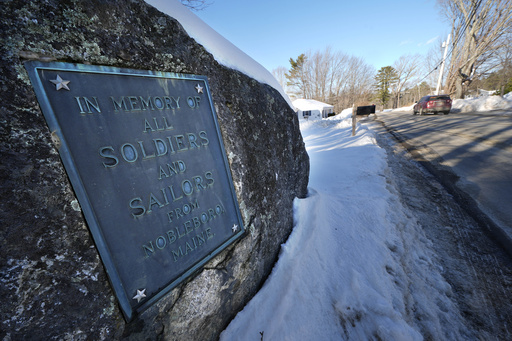
RALEIGH, N.C. — The recent announcement regarding the potential restoration of the name “Fort Bragg” has raised questions about whether it is a genuine honor or a politically motivated maneuver. State Rep. John Blust, a Republican from Greensboro and a former soldier in the 82nd Airborne Division, expressed joy over Defense Secretary Pete Hegseth’s decision to revert the name of Fort Liberty back to Bragg.
Originally named after Confederate General Braxton Bragg, the installation underwent a name change in 2023 as part of a broader effort to eliminate Confederate symbols from public spaces. The proposal to rename the fort to Fort Bragg aims to honor Army Pfc. Roland L. Bragg, a World War II paratrooper from Maine and a Silver Star recipient. In a bold move, Hegseth declared, “Bragg is back,” while presenting the document that could initiate the name change.
However, how feasible this name change is remains uncertain, as it required congressional action to initially remove the Confederate names from military installations. The process for restoring the name could become complex and costly, possibly conflicting with existing laws. Republican Rep. Donnie Loftis from Gaston County voiced his enthusiasm for the shift, asserting that military personnel do not associate “Fort Bragg” with its Confederate history but rather with elite military units and operations.
On the other hand, Fayetteville Mayor Mitch Colvin, who had supported the name change from Bragg to Liberty, critiqued the decision as contradictory to the administration’s goals of efficiency and fiscal responsibility. Colvin highlighted the involvement of Gold Star families in the previous renaming process, emphasizing that Liberty represented the values the military stands for.
W. Fitzhugh Brundage, a history professor from the University of North Carolina, noted that the new name recognizes a different figure, expressing skepticism about the motivations behind this name change. He pointed out that the decision might not satisfy everyone and that this strategy of renaming could not easily be applied to other military bases.
The family of Roland Bragg was taken aback by the news, as Bragg’s daughter, Debra Sokoll, learned from reporters about the fort’s potential renaming. While she was glad to hear of the honor, she expressed uncertainty regarding the Army’s intentions, stating that it was not something her father would have ever sought. She described him as a diligent individual who lived modestly and had no monuments dedicated to him in his hometown.
Gen. Braxton Bragg, known for his failures during the Civil War and ties to slavery, contrasts sharply with Roland Bragg, who distinguished himself in combat during the Battle of the Bulge and received commendations for his bravery. In addition to his military service, Roland Bragg was a devoted family man who endured hardships during the Great Depression.
Defense spokesperson John Ullyot stated that the renaming would highlight the fort’s legacy honoring individuals who have shown extraordinary valor. However, not all stakeholders may share that perspective. Patti Elliott, who participated in the commission that recommended changing the name to Fort Liberty, noted her limitations in discussing the matter due to her role with the American Gold Star Mothers, having lost her son in Iraq.
Given the estimated $8 million expense to change the name to Fort Liberty, Loftis questioned how the budget could accommodate another name change, stating that such costs might have been avoided had the name never changed in the first place.
The North Carolina Department of Transportation indicated that their share of the renaming would exceed $200,000, following the replacement of approximately 80 signs in 2023. Despite the potential backlash, Loftis is eager to exchange a Confederate name for one honoring a former soldier who fought with distinction, maintaining that it’s a worthwhile endeavor. “That guy was a hero. He earned his Silver Star. That’s what makes America great,” Loftis affirmed.

